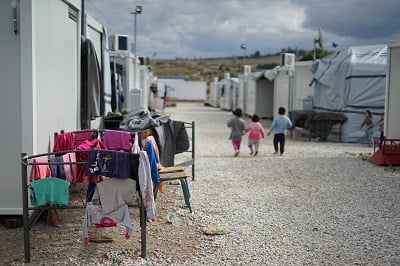Syrian Refugees In the US: Impact of Exposure to War Trauma and Stress of Migration
Syrian Refugees In the US: Impact of Exposure to War Trauma and Stress of Migration

Imagine one morning you wake up to a loud sound of explosion, and in disbelief find out the whole city is in chaos. There is no electricity, no tap water, grocery stores are closed indefinitely, and there is no gas for the car. Control of your neighborhood constantly transitions between different groups who may treat you differently based on your religion or ethnicity, and yourself and your family are under constant threat of torture, and injuries, or even loss of life. This is what happened in Syria.
Years of civil war in Syria has caused chronic exposure to adversity, lack of resources, losses, and extreme trauma in adults and children. Those who were resourceful and lucky enough, left their homes, memories, and loved ones -dead or alive- behind, and ended up in overcrowded camps with minimum resources. After an average of two years, some of them were told they will live in a new country, the US.
After arriving in the US, they had to learn the language, the culture, and how things work here, which is often very different than Syria. On top of that, the political environment has not been very welcoming.
Altogether, the whole journey and transition has been very stressful for the families, understandably so. Our team at the Stress, Trauma, and Anxiety Research Clinic (STARC) at Wayne State University is the first in the US to look at the impact of exposure to war trauma and stress of migration on mental health of a large group of Syrian refugee adults and children.
Within the first month of their arrival in the US, we found very high level of psychological distress: a third of men and women screen positive for PTSD, nearly half for high anxiety, and nearly half for depression. 80% of those with PTSD, also have depression. These are both disabling conditions that can gravely impact one’s ability to cope with the stress of migration, and impede integration into the new environment which requires significant amount of exploration and social interaction.
Half of the children had high level of anxiety, and nearly 80% separation anxiety. Not wanting to leave parents is an adaptive response when a child is exposed to extreme unsafe situations during war, but will limit their ability to go to school, and explore the new life environment as a refugee. Symptoms of children are linked with those of their mothers: the higher anxiety, depression, and PTSD symptoms severity in mothers, the higher the anxiety in their child.
We went to their houses and interviewed the families one year later: although there is a decline in anxiety and depression in some adults, without treatment, trauma symptoms seem to sustain over time. Severity of distress among both parents one year post arrival, is linked with changes in trauma symptoms in their children: the higher the parents’ distress, the less the improvement of trauma symptoms in their child. Also, parental environmental stress (housing, finances, social and governmental support, etc) negatively affects their child’s psychological distress. There is a lot to be done to protect the refugee families, and the children who will be future American adults, against the profound lifelong negative impact of trauma, depression and forced migration. To assure a productive, functional and well-assimilated future for them, we the citizens may have to take charge and make that decision, before it is too late.












